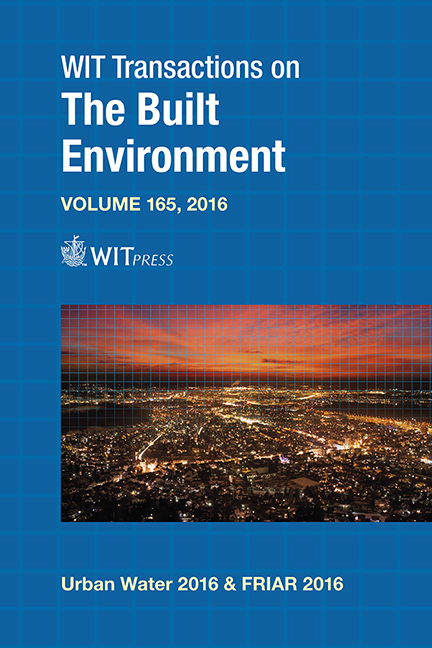Application Of A Decision-support System For Water Loss Reduction To The Case Of A Water Supply System In Lithuania
Price
Free (open access)
Transaction
Volume
165
Pages
12
Page Range
27 - 38
Published
2016
Size
539 kb
Paper DOI
10.2495/UW160031
Copyright
WIT Press
Author(s)
E. Oertlé, A. Jurkienė, M. Rimeika
Abstract
For many water utilities worldwide, tackling the topic of water loss reduction is an event-driven strategy and a long term planning involving strategic approach is hardly applied. The water loss levels are very different between European countries as water loss varies from 7% to 50%. Lithuanian water utilities average a water loss level of about 30% of total water supply.
Efficient water loss reduction requires a good understanding of the water utility and often involves actions related to different categories, such as data and metering, network documentation, water balance and performance indicators, district metered areas, active leakage control, pressure management, infrastructure management, operation and maintenance, apparent losses, human resources, equipment and budget, organization, managerial commitment and public awareness. The complexity and abundance of parameters to be considered require the use of supporting tools and methods in order to work in a systematic way and propose most adequate measures.
This paper presents a unique decision-support system (DSS) that aims to help engineers and manager approach their water utilities in a holistic way by first evaluating the baseline and analysing the current situation by identifying where are priority areas with most potential in order to finally support the action planning of most appropriate measures.
The DSS has been applied to the case of a Lithuanian water utility with a 400 km water supply network connected to 57,000 water users. The system operates with an average pressure of 60 m and the current level of non-revenue water in the system was 704,000 cubic meter per year in 2011. The application of the DSS to this case study allowed to process to a full evaluation of a typical Lithuanian water supply network by supporting the establishment and implementation of a tailor-made three-year action plan and reducing non-revenue water by 40%.
Keywords
water loss reduction, decision support system, water utility, performance indicators, water balance, assessment, strategy, action plan





